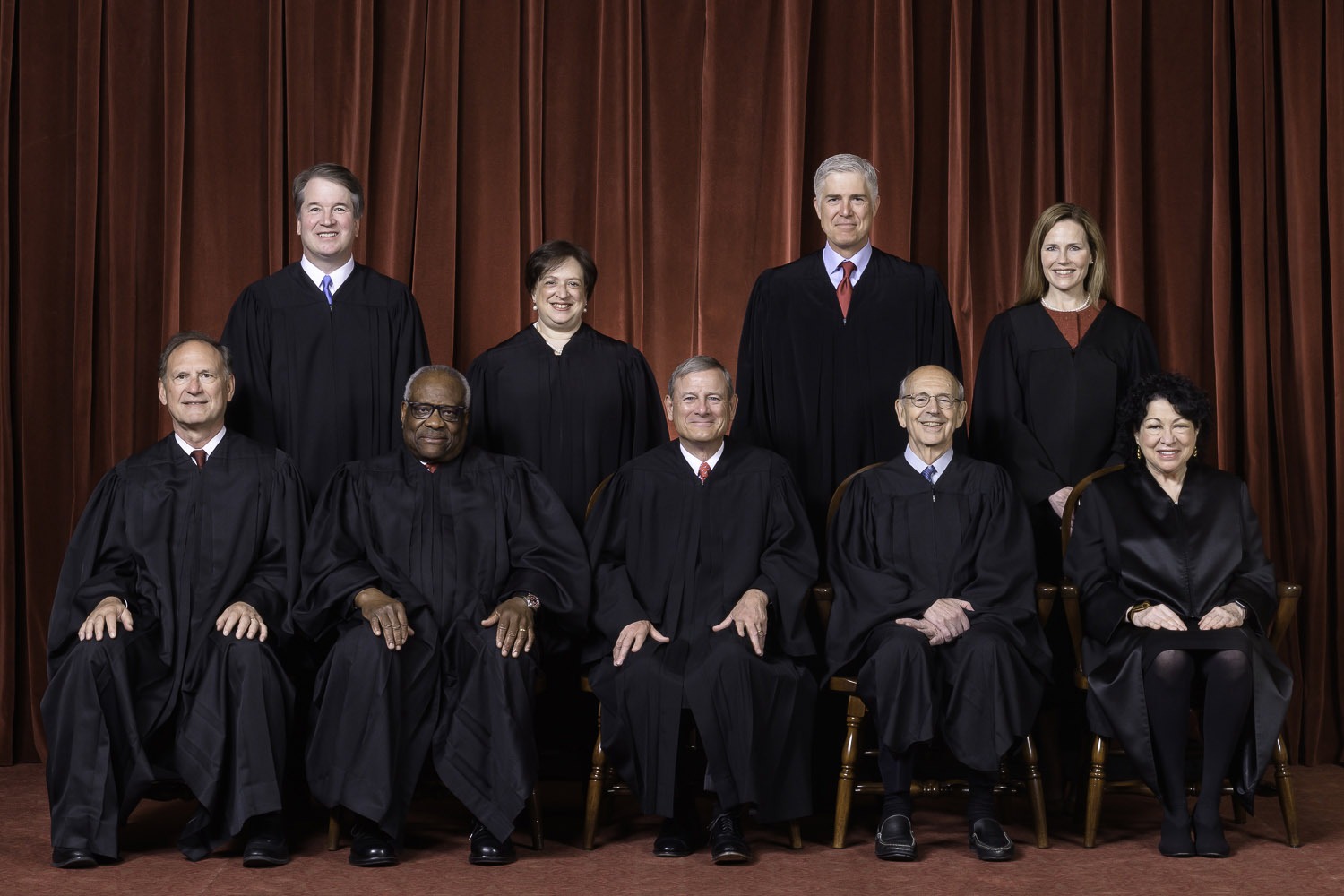Supreme Court Overturns Roe, Opening Door for Mass Criminalization of Abortion
Police and prosecutors will now be tasked with enforcing state anti-abortion laws.

The Supreme Court of the United States has overturned the landmark 1973 decision Roe v. Wade, opening the door for states to pursue the arrest, prosecution, and incarceration of people who seek or provide abortions, as well as those who help others obtain them. The Court’s decision will potentially criminalize hundreds of thousands, if not millions, of people. In 2019 alone, more than 600,000 legal abortions were reported to the Centers for Disease Control and Prevention.
The news, while devastating, did not come as a surprise. Abortion advocates had been bracing for the decision since May, when Politico published a leaked early draft of the opinion, authored by Justice Samuel Alito.
As it was before Roe, police and prosecutors will be tasked with enforcing anti-abortion laws. But unlike the decades prior to Roe, law enforcement now has more powerful ways to surveil and build their cases against pregnant people and abortion providers—by monitoring period tracking apps, social media posts, online message boards, and text messages, for example.
“I don’t think that people understand at this moment how much worse post-Roe America is going to be in comparison to pre-Roe America,” said Robin Marty, director of operations at West Alabama Women’s Center and the author of The New Handbook for a Post-Roe America.
Last week, the National Right to Life Committee, an anti-abortion group, encouraged states to adopt model legislation that would drastically expand the enforcement regime in the wake of Roe’s reversal. If adopted, the laws would criminalize, among others, those who provide “instructions over the telephone, the internet, or any other medium of communication regarding self-administered abortions or means to obtain an illegal abortion.” The statute would also apply to those who host or maintain a website or provide internet service to a website that contains information on “how to obtain an illegal abortion” that is “purposefully directed at pregnant women” in the state.
In the lead-up to Friday’s ruling, some district attorneys had pledged not to enforce their states’ abortion bans. But National Right to Life’s model legislation would give state attorneys general the power to usurp their authority and initiate abortion prosecutions if a local prosecutor refuses. “[R]adical Democrat prosecutors have been elected in several counties in almost every State, who regularly refuse to enforce laws that do not meet their social-justice agenda,” reads the memo introducing the model legislation.
Congressional or federal action could stop this mass criminalization and human rights crisis, which advocates warn will fall hardest on people of color.
“Today the Supreme Court of the U.S. opens the floodgates for criminalization of Black women,” said Gina Clayton-Johnson, founder and executive director of the Essie Justice Group, an organization that fights mass incarceration, in a statement to The Appeal.
“The Justices today carve a discriminatory path for further isolation and have authored a future of incarceration and confinement for countless Black women in need,” she continued. “Given that a well-documented Black maternal health crisis renders hospitals less safe for Black pregnant women than for women of any other race, what is to be when every miscarriage becomes a crime scene, and every doctor becomes a criminal investigator?”
In May, a majority of U.S. senators voted against the Women’s Health Protection Act, which would enshrine the right to an abortion into federal law. Earlier this month, Senate Democrats called on President Biden to issue an executive order to protect abortion rights. As of this writing, he has not taken any action.
Abortion bans will trap untold numbers of people in the U.S. legal system. But they will also have devastating consequences for thousands of pregnant people who are already imprisoned. Of the 26 states that are certain or likely to ban abortion, ten have the nation’s highest rates of female incarceration, according to 2020 data released by the Bureau of Justice Statistics: Idaho, Oklahoma, South Dakota, Arizona, Wyoming, Kentucky, Montana, Arkansas, Mississippi, and West Virginia.
While much is unknown about how abortion bans will affect pregnant prisoners, the impact is sure to be catastrophic, according to Carolyn Sufrin, associate professor of gynecology and obstetrics at the Johns Hopkins University School of Medicine.
For instance, a pregnant person incarcerated in a state with an abortion ban will almost certainly not be permitted to travel to a state where abortion is legal, Sufrin told The Appeal in May after the leaked draft opinion was published.
Another complexity for people in prison is that some are incarcerated outside of the state where they were convicted, which will likely cause confusion over which state laws govern their access to abortions. Similarly, it’s unknown if a federal prisoner incarcerated in a state with an abortion ban would be subject to the state’s laws or not, Sufrin said.
It’s also unclear what abortion bans will mean for incarcerated people who become pregnant as the result of a rape, Sufrin told The Appeal. The federal Prison Rape Elimination Act standards direct correctional authorities in these situations to provide victims with “timely information about, and access to, all lawful pregnancy-related medical services.”
Many of these questions will likely be litigated. In the meantime, advocates say, pregnant incarcerated people will be forced to carry pregnancies to term against their will.
Without any universal mandatory standards of care for incarcerated pregnant people, some will go without prenatal exams, screenings for high-risk pregnancies, prenatal vitamins, and proper nutrition, said Evelyn McCoy of the Urban Institute’s Justice Policy Center. Because the shackling of pregnant people is still quite prevalent, some will be shackled during their labor and delivery, she said.
“Prenatal care is extremely challenging in a correctional environment,” McCoy told The Appeal. “The prenatal care, if they’re able to access it, is of very poor quality and insufficient to meet their needs.”
